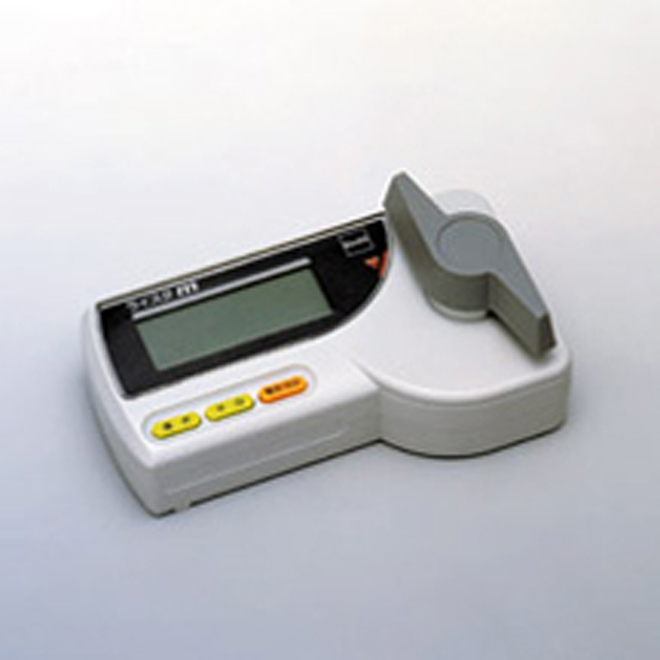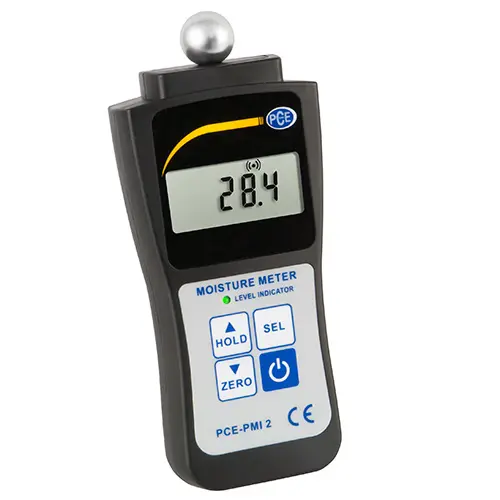How to Make Use Of a Moisture Meter to Discover Hidden Water Damage in Your Building
How to Make Use Of a Moisture Meter to Discover Hidden Water Damage in Your Building
Blog Article
The Ultimate Guide to Moisture Meters: A Comprehensive Overview and Just How They Can Save You Money
In the world of building upkeep, construction, and different markets, the importance of properly gauging dampness degrees can not be overstated. Wetness meters serve as crucial tools in finding and keeping track of moisture content in materials, aiding in avoiding costly damages and making sure the high quality of items. Comprehending the nuances of various sorts of wetness meters, their applications, and the possible cost-saving advantages they use can be a game-changer for professionals and organizations alike. Discovering how these gadgets can not only streamline processes yet additionally add to economic cost savings is a trip worth beginning on.
Types of Moisture Meters
One typical type is the pin-type wetness meter, which determines the electric resistance in between 2 pins inserted right into a material. Pinless moisture meters, on the various other hand, use electro-magnetic sensor plates to scan a bigger location without triggering damages to the material's surface.
Infrared moisture meters measure the thermal properties of a product to establish its moisture web content non-invasively, making them valuable for applications where pin or pinless meters might not be suitable. Understanding the various types of moisture meters readily available can aid markets choose the most suitable tool for their details moisture measurement requirements.

Advantages of Making Use Of Moisture Meters

Moreover, making use of dampness meters can lead to raised energy effectiveness. In farming setups, wetness meters play an essential role in enhancing plant yields by making it possible for farmers to monitor soil wetness levels and make educated watering decisions.
Just How to Select the Right Moisture Meter
Selecting the ideal dampness meter involves taking into consideration vital aspects such as product compatibility, measurement range, and calibration accuracy. When picking a moisture meter, it's important to guarantee that the meter appropriates for the particular product you will be screening. Various materials have varying electrical residential or commercial properties that can influence wetness analyses, so picking a meter made for your product is vital for accurate results. Furthermore, consider the measurement array of the moisture meter. Make sure that the meter can spot dampness levels within the range needed for your applications. Calibration accuracy is another important variable to remember (Moisture Meter). Opt for a wetness meter with reputable calibration to make certain specific and constant readings. Some meters may call for regular calibration changes, so comprehending the calibration procedure is necessary. By meticulously examining these variables, you can select a dampness meter that fulfills your needs and offers accurate dampness dimensions for your jobs.
Appropriate Techniques for Moisture Meter Usage
To make sure precise wetness readings and maximize the performance of a moisture meter, employing appropriate methods is necessary. When making use of a pin-type moisture meter, place the pins or probes right into the product being checked until they make complete get in touch with. Ensure the pins are vertical to the surface to obtain one of the most exact analysis. For pinless dampness meters, hold the device level versus the product index and relocate it slowly to cover the whole location for an ordinary reading. It's essential to adjust the dampness meter according to the material being tested to enhance precision. Take several analyses across the surface and ordinary them out for an extra reputable result. Furthermore, guarantee that the product being tested is adapted to the environment to stop manipulated readings. Routine upkeep of the moisture meter, such as cleansing the pins or sensor, is additionally essential to ensure exact and constant analyses. By complying with these correct methods, users can depend on their dampness meter to provide trustworthy wetness degrees, helping in avoiding expensive damages or making certain quality in numerous applications.

Cost Cost Savings Via Moisture Meter Applications
Just how can the tactical application of dampness meters lead to substantial cost financial savings throughout various sectors? In the agriculture market, wetness meters help in determining the ideal time for harvesting plants, protecting against over-drying or excess moisture that can impact the final item's high quality.

Furthermore, in the food handling industry, moisture meters are essential for keeping track of product high quality and making sure compliance with safety and security laws. By properly gauging wetness content in food products, makers can protect against spoilage, preserve quality, and minimize waste, causing considerable expense financial savings. In general, the strategic application of wetness meters is a valuable financial investment that can bring about considerable expense reductions and enhanced effectiveness across different industries.
Verdict
To conclude, wetness meters are valuable devices for measuring and detecting wetness degrees in different materials. By making use of the appropriate wetness meter and complying with correct methods, users can efficiently avoid pricey damages triggered by excess dampness. Purchasing a high quality moisture meter can lead to significant price savings in the future by determining potential issues early and allowing prompt removal. Ultimately, wetness meters are essential instruments for preserving the stability and long life of products and frameworks.
Dampness meters serve as indispensable tools in spotting and keeping track of moisture web content in materials, aiding in avoiding expensive problems and making certain the high quality of products. Infrared moisture meters measure the thermal properties of a material to identify its moisture web content non-invasively, making them useful for applications where pin link or pinless meters may not be ideal.Wetness meters provide indispensable benefits in accurately keeping an eye on and analyzing wetness levels in varied materials and settings. In agricultural settings, moisture meters play an important duty in optimizing crop yields by allowing farmers to monitor dirt moisture degrees and make educated irrigation choices.In final thought, wetness meters are useful devices for measuring and identifying dampness levels in numerous products.
Report this page